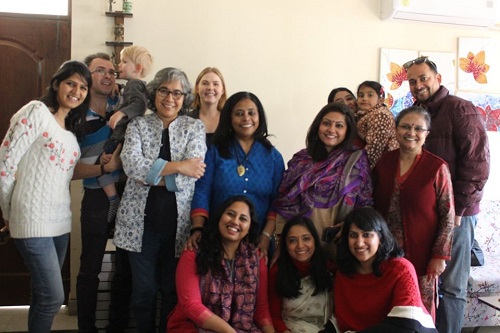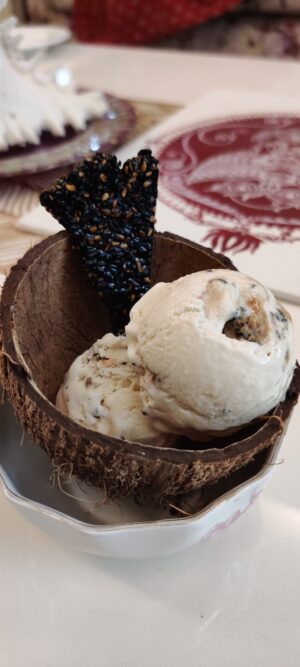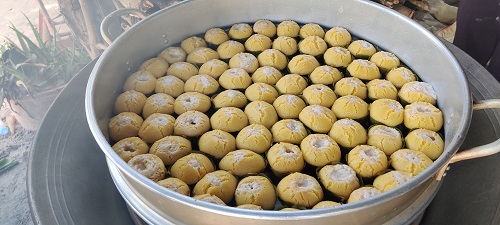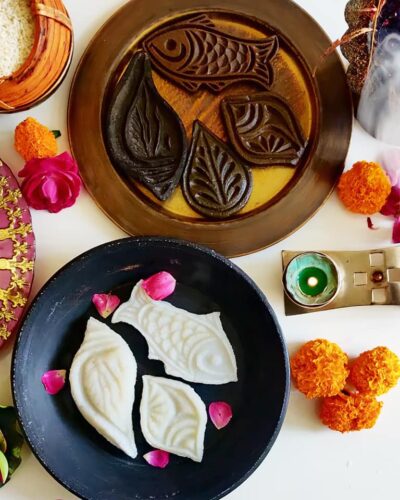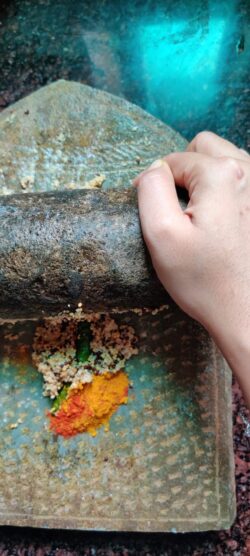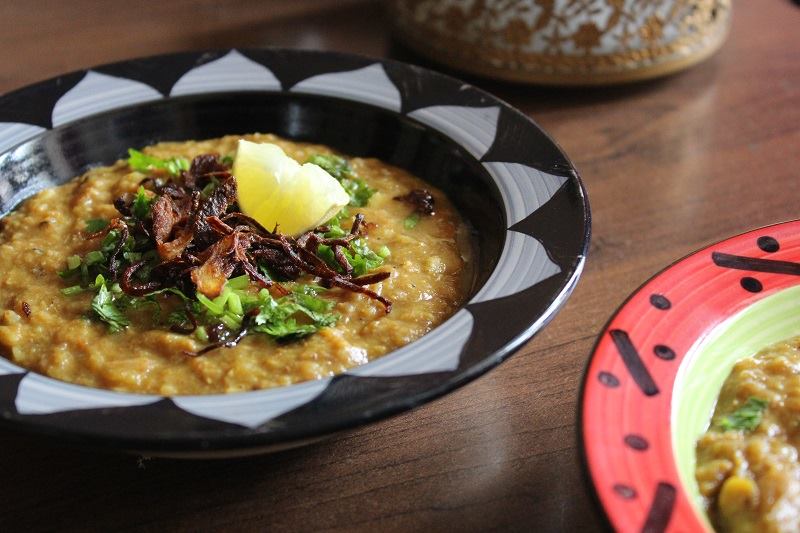The Pithe Parbon pop-up on Poush Sankranti/Bhogali bihu was on 14 January in 2018, we were lucky this time as the festival coincided with the weekend. After having missed a ‘meji’ for decades together, I was determined to have a mini ‘meji’ in our balcony, complete with a group of enthusiastic and happy people to stand around it. The event was not so much about the significance of Poush Sankranti and Bhogali Bihu; enough has been written and said about it. The attempt was to use the occasion to bring back quite a few of the customary sweetmeats (pithe-puli) that have been fading with the march of time and have almost become obscure. The idea was to go beyond patishapta and doodh puli. Do not…
-
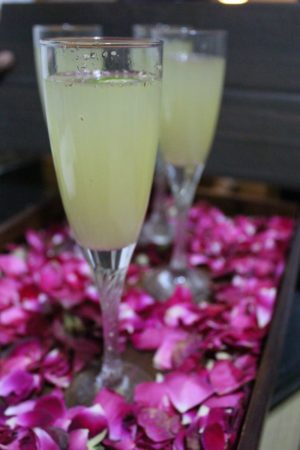 Continue Reading
Continue ReadingThe ancient Indian mind openly faced sensuality as the reality it is – one of the expressions of the divine mind. They held it as a sacred and godlike function, its significance in life recognized in classical literature and sculptures. Herbs, recipes and potions to be used in love are often met with in text as old as Atharvaveda; and taken to refined height of documentation in Vatsayana’s Kamasutra. Besides Vatsayana’s treatise, the Indian Kama Shastra or discipline of sensuality contains six other texts – The Ratirahasya, or secrets of love; The Panchasakya, or the five arrows; The Smara Pradipa, or the light of love; The Ratimanjari, or the garland of love; The Rasmanjari, or the sprout of love; and The Anunga Runga, or the…
-
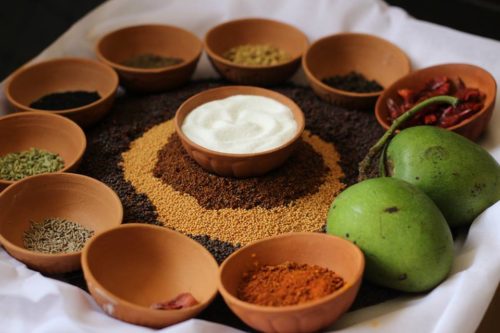 Continue Reading
Continue ReadingThe Social Tables Mini had as auspicious and fun a start as we could have ever hoped for. We brought together people around the tradition of making kasundi – the famous Bengali mustard condiment. Kasundi has always been shrouded in intrigue, bonding and a lot of love. We wanted to bring back all of that of people. I come from a family that was one of the few who made kasundi, but gave up on it decades ago and sought comfort in the bottles off the shelf. Not the same thing, we would lament but the effort was just too much. Not so much, when you make it into a ritual about bonding, fun, laughter and love of food. As all of us discovered while…
-
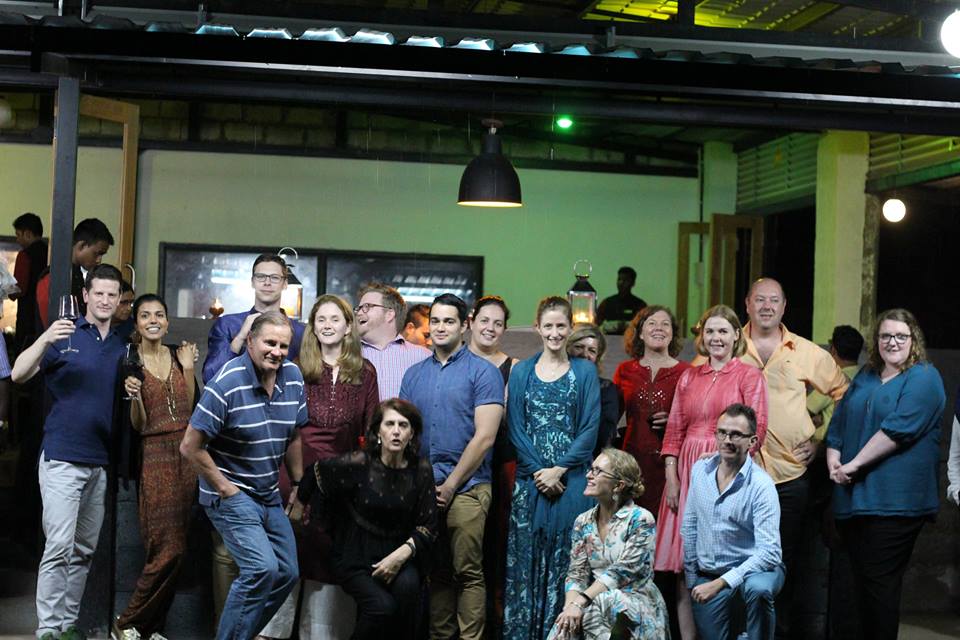 Continue Reading
Continue ReadingDate: 01 October 2017 Place: Soma Bangalore Vineyards The Cosmic Wedding was as ambitious as one could get while curating special pop-up dinners. The theme was mythology and not food; we wanted to use ingredients that have mention in vedas, puranas and the great epics; we wanted the food to be Indian, yet not quite so; we wanted it to be a sit-down, pre-plated, silver-service dinner and we wanted to host in an outdoor venue! How did we land here? Early in March, we were standing with Darby Raju in the open air amphitheater of his picturesque Soma Bangaore vineyards and sipping on a glass of crisp white wine. The outline of the Nandi Hills in the almost dark of the evening led to a…
-
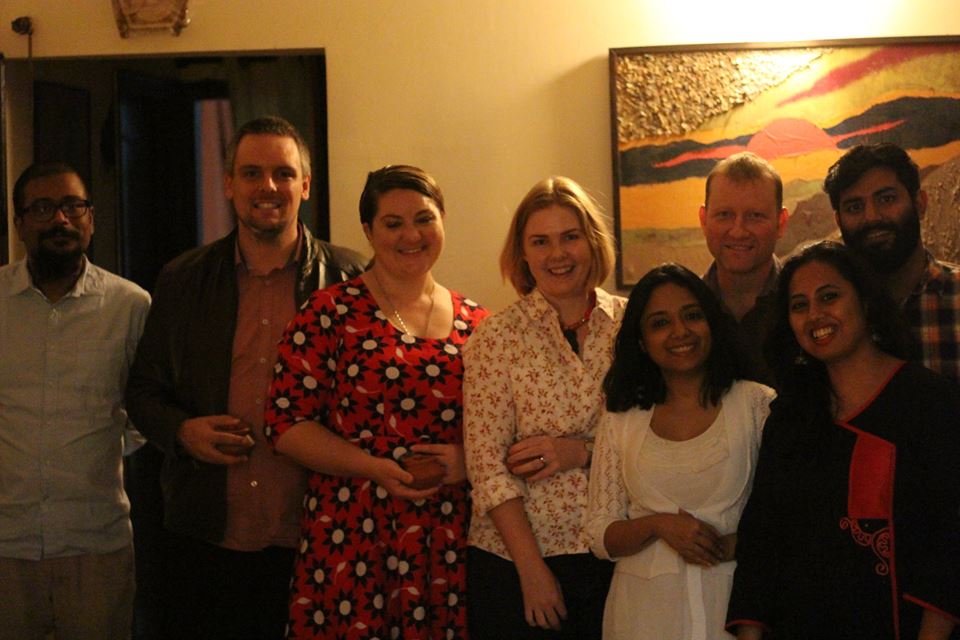 Continue Reading
Continue ReadingIn one of our pop-ups, we brought to the table four biryanis from across the sub-continent that are relatively lesser known than their more famous cousins – Dhakai Fish Biryani, Thalessery Chemmeen Biryani, Memoni Keema-Masoor Biryani and the Rampuri Do-Goshta Biryani. We started the evening with a marigold and lemon tea and proceeded to Prince Morad Baksh’s favourite – warm comforting bowls of Moradabadi daal, smooth, tangy, sweet with a crunch of papris. The bowls of daal formed the perfect backdrop for stories and anecdotes that traced India’s history through the march of the biryani across the sub-continent. We selected these four keeping in mind their diverse taste, geography and different timelines at which they became a part of the great biryani legend. The biryanis…
-
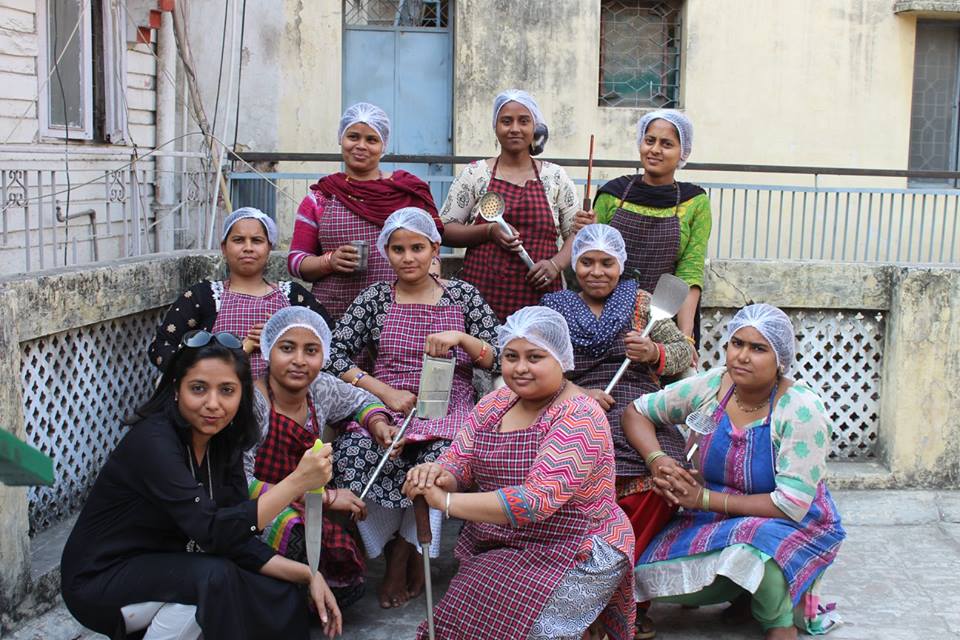 Continue Reading
Continue ReadingWe had promised you that we will bring you the Nizamuddin 11…here they are. After training classes that lasted six weeks, the pop up by Zaika-e-Nizamuddin with ForkTales finally happened in March, 2018. After working with them and knowing them for more than a month, this event, in my heart and mind, was not just about their food. In fact a very small part of it was their food, which just to get facts straight was top notch. It was a month’s journey of drawing them out of their cocoons and then seeing them spread their wings. Eleven women, from Nizamuddin Basti, who juggle household duties, are primary care givers to their adolescent children, young toddlers and elderly parent-in-laws, have jobs as house helps in…
-
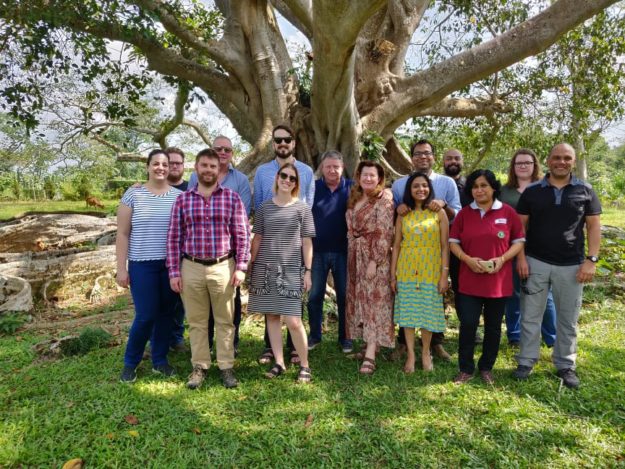 Continue Reading
Continue ReadingGora Sahib’s Table A time travel into India’s colonial past amidst world’s largest tea growing region. October 6 &7, 2019 Day 1: You will land in Jorhat – one of the important urban centres of Assam – which was the last capital of the mighty, warrior Ahom Kings in 18 Century BC; in 1824 the British East India Company took over the town from the Ahom kings, started tea cultivation in 1838 and by 1839, the first Assam tea was auctioned in London. After a 40 minute drive from Jorhat Airport, you will arrive at the tea garden heritage properties – Banyan Grove/Kaziranga Golf Resort. The evening is all to yourself, so take a walk in the 18 hole, par 71 golf course set…
-
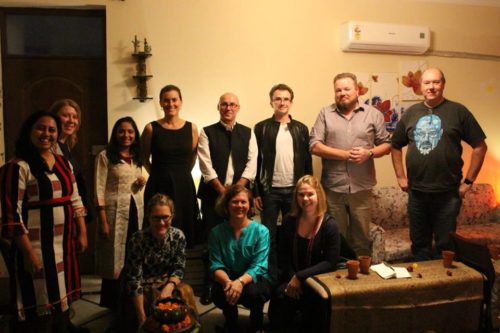 Continue Reading
Continue ReadingMedieval India was an exciting place for food lovers. It was during this period that texts in regional languages and Sanskrit first started including ‘Supashastra’ or cooking sciences as a stand-alone chapter. One of the most extensive and only the second instance of it is the encyclopedic treatise – Manasollasa – by King Somesvara III of the Kalyani Chalukya dynasty, who reigned from 1126 to 1138 AD. Manasollasa (the delight of the mind) is also also called Abhilaṣitartha Cintamaṇi (the magical stone that fulfills all desires), is a voluminous work which records many subjects relevant at that time, and draws from many older treatises on medicine, magic, veterinary science, valuation of gemstones, painting, music, games and amusements and the many other subjects. The third section…
-
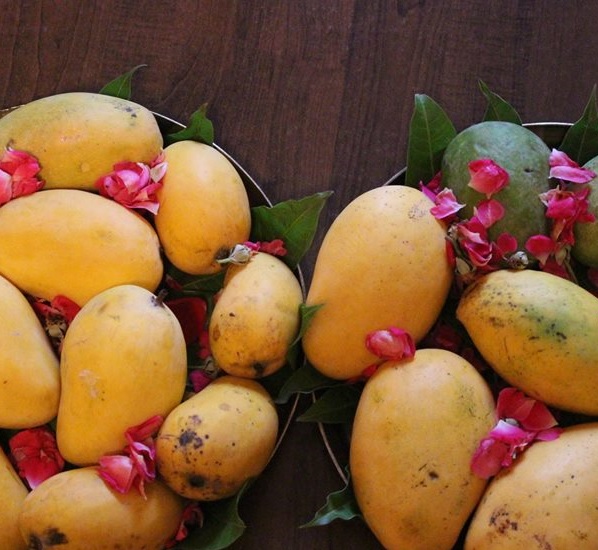 Continue Reading
Continue ReadingWading through the often difficult Indian summers, how could Social Tables by ForkTales not find solace in company of the king of fruits that make the subcontinent’s summers worth drudging through! So, there we were celebrating Indian mangoes in their complete glory with basket full of mangoes to taste and a whole spread, from drinks to desserts, that used almost every bit of the mango. Of course, there were stories and tales about origin and history of mangoes. The earliest mention of mango is in Hindu scriptures dating back to 4000 B.C. It is mentioned in early Vedic literature as Rasala and Sahakara. The Ramayana has mention of mango groves. Brihadaranyaka Upanishad and Varaha Puran prohibit the felling of a mango tree. There is consensus…
-
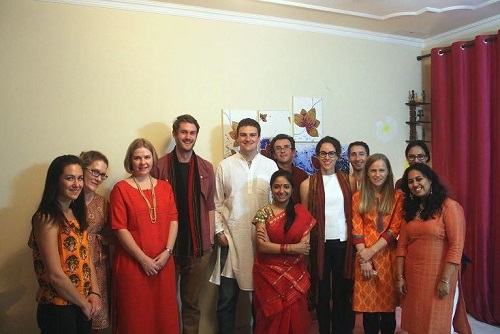 Continue Reading
Continue ReadingThe second event by Social Tables choose to tread a path less taken – demystify the idea of non-vegetarian prasad – an idea which is alien to most. And what better than bhog served to the Mother Goddess and the numerous forms that she is worshipped in across Bengal. We brought forth a bit from every belief that the Mother is worshipped with. The strictly vegetarian Vaishnavs, the Shaktas who evoke her as the divine power and the Tantric belief which sanctions animal sacrifice and ritualistic offering of meat. It was also century and a half old family recipes of prashad, the residue of primitive believes and what every household offers to the resident Lashmi and Saraswati. The taste of prashad, they say, can…

